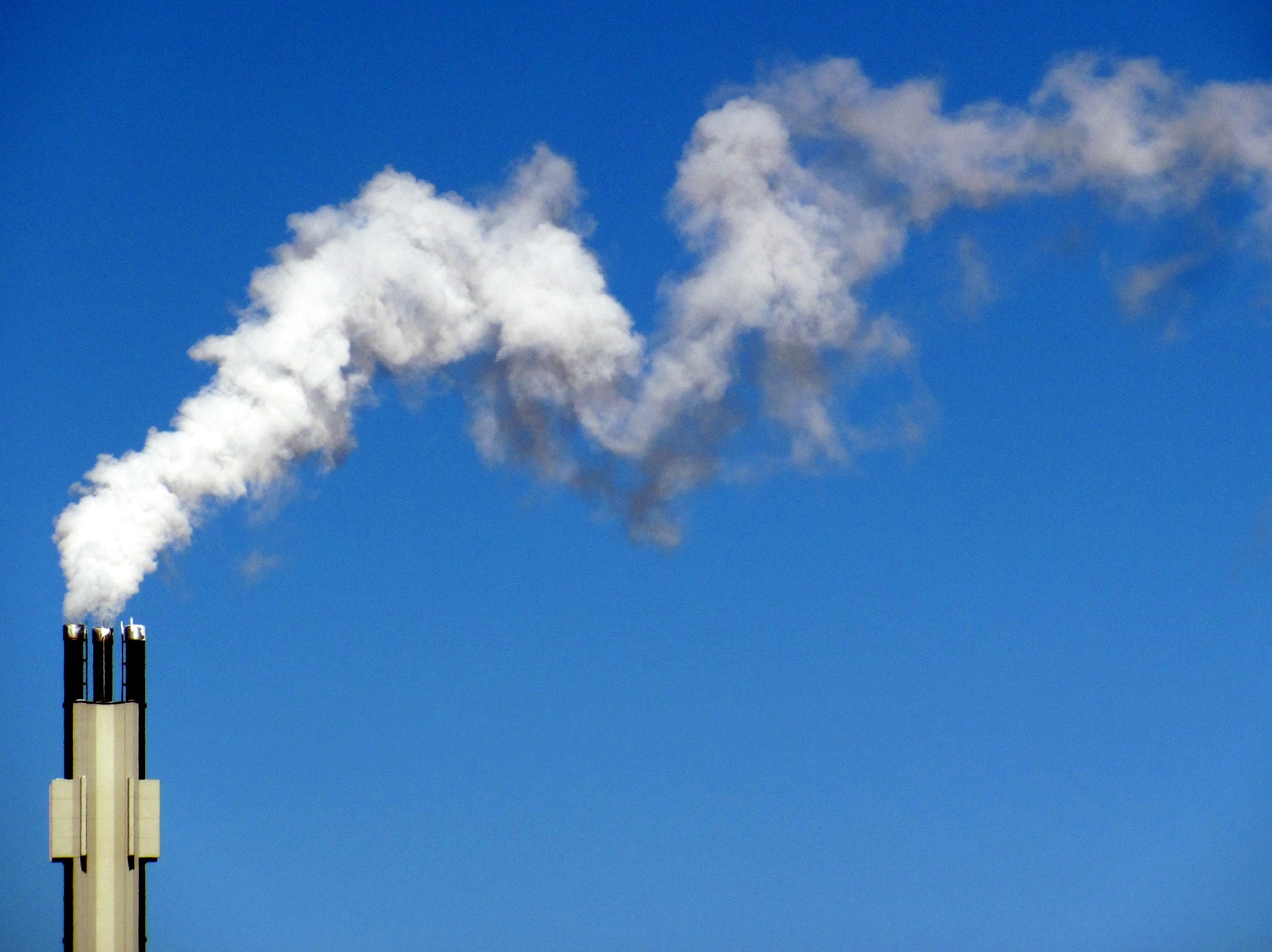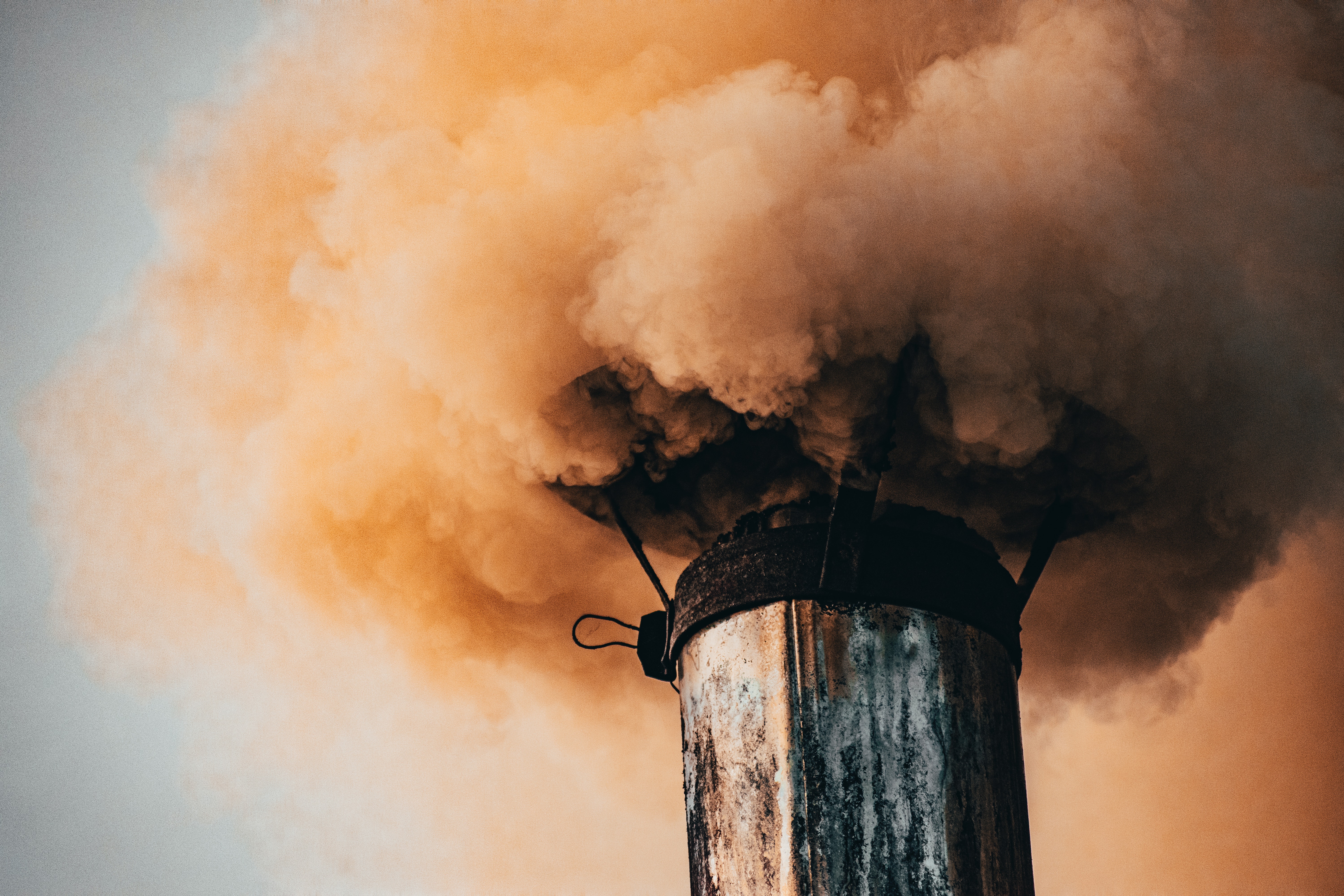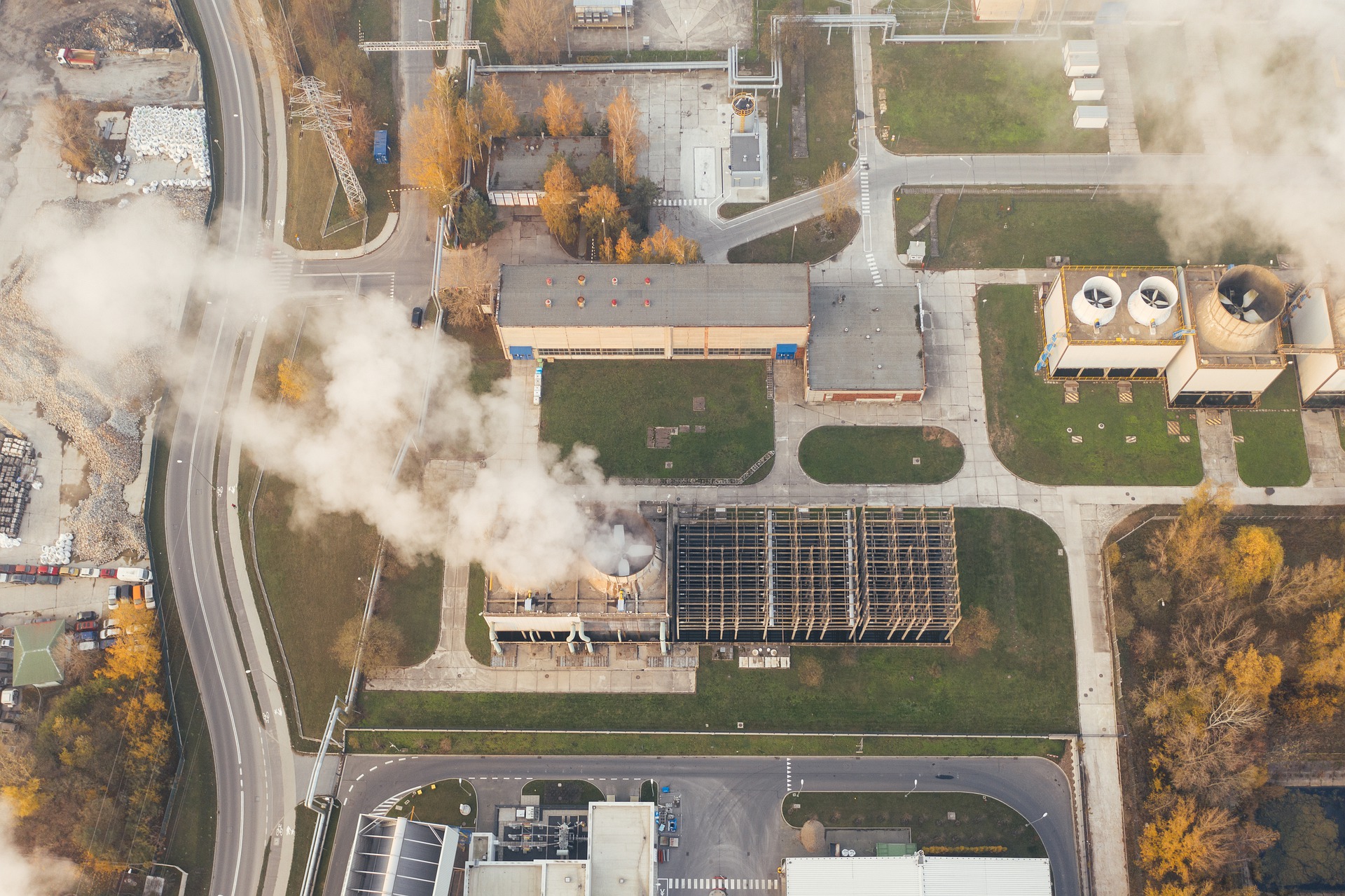Find out which New Jersey air permit YOU need!
Air permits in New Jersey are pretty confusing. If you own a business, even a small one, and you use any type of equipment that emits air pollution, you probably need to have an air permit. These regulations apply to almost everyone - from multi-national manufacturing operations to small mom-and-pop dry cleaners.
The New Jersey Department of Environmental Protection (NJDEP) is responsible for issuing air permits, and there are a few different types of permits that your business may qualify for. Generally, the type of permit you need will depend on the type of equipment you use and the amount of pollution it emits.
But what are these different permits? And which New Jersey air permit do you need?
This is where things get confusing. New Jersey has some of the most strict and complicated air regulations in the country, and this is especially true for air pollution permits. Let's take a deeper look at the different air permits New Jersey offers to help you figure out which permit is right for your operation.

Additional Resources on New Jersey Air Permits
Again, air permits are pretty complex and confusing. If you're still trying to figure out the basics, you might want to check out some of these other articles for some additional information before diving in here.
What are the different types of air permits in New Jersey?
Okay, we just mentioned that there are a few different types of permits - so what are they? There are four (4) different types of available air permits in New Jersey. They are:
- General air permits;
- Preconstruction air permits;
- Title V operating air permits, and;
- General operating air permits.
Let's take a closer look at each of these permit types to see where you fit in!

What are general air permits in New Jersey?
General permits are typically the best option for facilities if their equipment can qualify for one. These permits come with preset operating conditions and recordkeeping requirements - that is, they're already written and ready to go. In most cases, these permits are for minor sources or small emitters. Note that facilities may have multiple general permits in addition to other types of permits too. These permits also offer same-day approval.
If you qualify for a general air permit, you're in luck! These permits are typically the least expensive and easiest to live with. However, not just anyone can qualify for a general air permit. You'll need to fall under the requirements for one of the permits outlined below in order to be eligible for one.
Who qualifies for a general air permit in New Jersey?
There are currently 17 available general permits from the NJDEP. All of the current general air permits in New Jersey are listed below, along with a brief summary of equipment that qualifies to be permitted under this permit. Remember, in most cases, a general permit will be the most cost-effective and best option for your facility, so fingers crossed that you qualify for one of these!
Okay, the New Jersey general air permits are:
- GP-001A: Solid Material Storage Equipment:
- Common equipment covered: Storage bins/containers/silos having a storage capacity greater than 2,000 cubic feet, used for the storage of solid particles.
- GP-004A: Fuel Dispensing Facilities:
- Common equipment covered: Gasoline dispensing operations equipped with Phase 2 vapor recovery systems at marinas, service stations, airports and other industrial/commercial operations.
- GP-004B: Fuel Dispensing Facility Equipped with a Phase 1 Vapor Recovery Control System:
- Common equipment covered: Gasoline storage tanks having a storage capacity greater than 2,000 gallons equipped with a stage 1 vapor recovery system.
- GP-005A: REVISED Emergency Generator(s) Burning Distillate Fuels:
- Common equipment covered: Emergency generators greater than 1 MMBTU/hr burning distillate fuels.
- GP-005B: REVISED Emergency Generator(s) Burning Gaseous Fuels:
- Common equipment covered: Emergency generators greater than 1 MMBTU/hr burning gaseous fuels.
- GP-007: Stationary Non-Floating Roof Storage Tank(s) Storing Volatile Organic Compounds
- Common equipment covered: Tanks with a storage capacity of greater than 2,000 gallons with a vapor pressure greater than 0.02 psi.
- GP-008: Site Remediation Activities for Gasoline Contamination at Vehicle Fueling Stations (SVE)
- Common equipment covered: Soil vapor equipment for air sampling, groundwater air sampling, air sparging with soil vapor extraction, and numerous air control devices including thermal oxidizers and carbon absorption systems.
- GP-009B: Boiler(s) Each Greater than or Equal to 10 MMBTU/hr and Less than 50MMBTU/hr:
- Common equipment covered: Boilers and process heaters greater than 10 MMBTU/hr.
- GP-010: Non-HAP Degreaser
- Common equipment covered: Degreasers used at many auto-body shops and maintenance shops with an open-top surface area exceeding 6 square feet.
- GP-011: Degreasing Operations Using Only Methylene Chloride or 1,1,1 Trichloroethane Solvents
- Common equipment covered: Degreasers used at many auto-body shops and maintenance shops with an open-top surface area exceeding 6 square feet.

- GP-012A: Perchloroethylene Drycleaning Equipment
- Common equipment covered: Drycleaners that use PERC solvents are covered under this permit.
- GP-013A: Non-HAP Dry-cleaning
- Common equipment covered: Drycleaners using VOC solvents such as GreenStar and various hydrocarbon solvents may be covered under this service.
- GP-015A: Plating, Etching, Pickling and Electropolishing Operations
- Common equipment covered: Batch electrolytic process tanks, reel-to-reel electrolytic plating operations, dry mechanical polishing equipment, flash electroplating operations, packed bed scrubbers, mesh pad mist eliminator, polishing process tanks, and much more.
- GP-016A: Revised Manufacturing and Materials Handling Equipment
- Common equipment covered: Various conveyors, hoppers, feeders, hard drive shredders, and much more. Note that many operations may have numerous conveyors and hoppers which process a wide array of materials such as metals and aggregates. Many of these processes may be permitted under this general permit.
- GP-017A: Boiler(s) and/or Heater(s) Each Less Than 5 MMBTU/hr
- Common equipment covered: Boilers and process heaters located at numerous locations including schools, asphalt plants, concrete plants, housing complexes, commercial buildings and much more.
- GP-018A: Boiler(s) and/or Heater(s) Each Greater than or Equal to 5 MMBTU/hr and Less Than 10 MMBTU/hr
- Common equipment covered: Boilers and process heaters with a heat input greater than 5 MMBTU/hr.
- GP-019A: Temporary Equipment
- Common equipment covered: Engines with a model year 2014 or later servicing manufacturing equipment such as crushers, grinders, screeners, and stacking units. Note that this permit authorizes equipment for temporary usage for a single year.

What are preconstruction air permits in New Jersey?
Preconstruction permits (also called individual permits or case-by-case permits) are still for minor sources of air pollution, but generally include those that would emit more than would be allowable on a general permit. So, if you're just missing the mark for a general permit and don't qualify for any of the conditions we just listed above, a preconstruction permit is probably your next best bet.
A preconstruction permit is customized and designed for your particular operation, and no one else's. While this does come with some benefits, the main drawback here is going to be an increase in price when compared to general permits.
Who qualifies for a preconstruction air permit in New Jersey?
If a facility cannot qualify for a general permit and it is a small emitting facility (minor source), chances are a preconstruction permit will be your best option. Common sources which may qualify for a preconstruction permit in New Jersey include things like:
- Pharmaceutical batch processes
- Stationary reciprocating engines
- Crushing and screening units
- Concrete plants
- Asphalt plants
- Coffee roasting operations
- Recycling operations
Keep in mind that this is not an all-inclusive list! There are many more types of operations that would fall under the need for a preconstruction permit!
What are Title V air permits in New Jersey?
Title V permits are for major sources of air pollution and are only for the largest emitters. These are the big ones! If your facility needs a Title V permit, you'll probably be able to tell just by looking at your operation.
A Title V permit applies to facilities in New Jersey which have the potential to emit greater than 100 tons/yr of various pollutants including particulate matter and carbon monoxide. Title V permits are regarded as the most complicated, expensive, and difficult permits to live with.
Who qualifies for a Title V air permit in New Jersey?
Again, you can probably tell if you're going to need a Title V air permit just by looking at your facility. If you're a huge, towering industrial operation that releases plumes of pollutants into the sky, you're most likely looking at a Title V permit. Some examples of large sources that commonly require Title V permits in New Jersey include:
- Power plants
- Chemical manufacturers
- Refineries
- Portland cement plants
- Tanneries
Again, this is not an all-inclusive list and there are many other operations that would fall under the need for a Title V air permit!

What are general operating air permits in New Jersey?
General operating permits are only applicable to major sources of air pollution, so you'll only end up getting a general operating permit if you already have a Title V permit. As the name suggests, general operating permits are similar to the general permits for minor sources we previously mentioned, however, these permits apply only to larger emitting operations.
General operating air permits are the least common type of air permit in New Jersey, as the Title V permit will usually already cover all of the equipment you have on-site. These permits are most often used when a large emitting facility adds some piece of smaller equipment after they already have a Title V permit. Operations may choose to tac on a general operating permit for the new equipment in addition to their Title V permit, instead of modifying the existing Title V permit to include the new equipment.
Who qualifies for a general operating air permit in New Jersey?
Remember, these permits are designed for large emitting operations with additional pieces of equipment. While not common, some possible situations where a facility might choose to opt for a general operating air permit in addition to a Title V permit are:
- Power plants that added small boilers or heaters for employee offices
- Chemical manufacturers that added emergency backup generators for power outages
- Portland cement plants that added fuel dispensing pumps for cement trucks
Again, this is not an all-inclusive list and there are many other variations here that could cause an operation to choose to add a general operating permit to their existing Title V permit!
How much does an air permit cost in New Jersey?
This isn't a one-size-fits-all answer, and is going to depend on the permit you're looking for in addition to a couple of other factors. Air permits in New Jersey can range from anywhere between a few hundred dollars and tens of thousands of dollars. We can't get into all of the details here, but we have a whole article on the costs of air permits in New Jersey that covers this topic in-depth. We'll give you some ballpark numbers for now, but keep in mind there are lots of additional factors that may mean additional unexpected and hidden fees.
- General Permits -Initial application cost: $885
- Preconstruction Permits - Initial application cost: $2730 + $640 for each additional piece of equipment
- General Operating Permits - Initial application cost: $885
- Title V Permits - Initial application cost: Depends on the application, equipment, size, and scale of the operation.

The New Jersey air permit you need depends on your operation!
In summary, there are four different types of air permits in New Jersey, and the one you need depends on your particular operation and the equipment you have. Unfortunately, air permits in New Jersey are confusing. Whether you need a simple general air permit or a complex Title V air permit, chances are, it's only going to get more confusing from here.
When it comes to air permits in New Jersey, most businesses choose to outsource their environmental consulting needs to experienced professionals. By working with a qualified consultant, you can take the guesswork out of understanding and complying with NJDEP air regulations.
If you're overwhelmed by all this air permitting talk, you're not alone. RMA has been actively involved in helping companies with environmental regulations like air quality permits here in the Garden State since our founding in 1992. Long story short, we know the ins and outs of the environmental concerns facilities deal with regarding air permits and other environmental issues. We help you get into compliance with applicable environmental laws and regulations, ensuring your business stays out of trouble and in compliance.
If you're having any type of issue at your operation with your air permitting program, need to apply for an air permit, or anything else, and need the help of an environmental consulting firm with a proven track record, reach out. Even if we can't help, we’ll do our best to steer you in the right direction. Feel free to contact us at info@rmagreen.com, click here to contact us, or give us a call anytime at 888-RMA-0230 to learn how we can help your operation deal with environmental regulations and air permits.


















